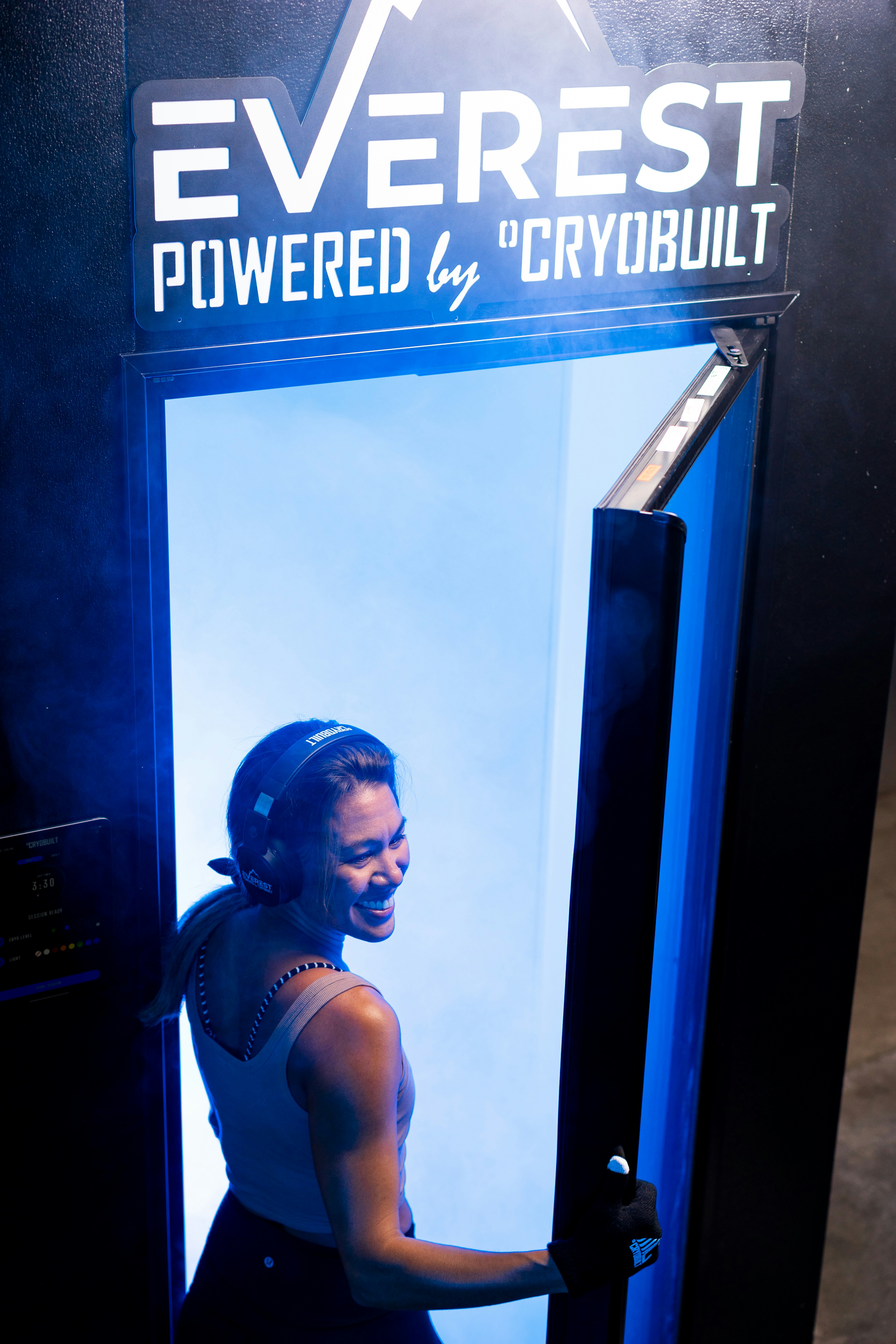Have you ever wondered how a splash of cold water can impact your body’s stress levels? It seems almost magical, doesn’t it? Our bodies and minds carry the weight of our daily stressors, and cortisol, aptly named the “stress hormone,” is at the forefront of this battle. But what if there was a simple, natural way to help manage these stress levels? Let’s explore the fascinating role of cold water in lowering cortisol levels and its potential benefits for your well-being.
Understanding Cortisol: Your Body’s Alarm System
Before diving into how cold water can help, it’s crucial to understand the role cortisol plays in your body. Cortisol is a hormone produced by the adrenal glands, playing a vital part in various bodily functions like metabolism regulation, reducing inflammation, and assisting with memory formulation. However, it’s best known for its role in the body’s fight-or-flight response.
The Multifaceted Hormone
Cortisol does more than just reacting to stress. It’s involved in controlling blood sugar levels, regulating metabolism, reducing inflammation, and assisting with memory formulation. Yet, when you’re stressed, your body ramps up cortisol production, preparing you to confront or escape the source of stress. This increase is perfectly normal and can be beneficial in short bursts.
The Consequences of Chronic Stress
The problem arises when your body is subjected to prolonged stress. High cortisol levels over time can lead to numerous health issues, including anxiety, depression, impaired cognitive performance, blood sugar imbalances, and even weight gain. This is where cold water may play a crucial role, offering a natural and refreshing solution to help lower cortisol levels.
The Science Behind Cold Water Therapy
cold water therapy, also known as hydrotherapy or cold-water immersion, has been used for centuries across different cultures for its potential health benefits. But what makes cold water a potential ally in managing cortisol levels?
The Biological Impact of Cold Water
When you expose your body to cold water, it triggers a variety of beneficial physiological responses. One of the most interesting is the activation of your sympathetic nervous system and the subsequent release of endorphins. Endorphins are known as “feel-good” hormones, which can help counterbalance some of cortisol’s negative effects.
Hormesis: The Beneficial Stress Response
Cold water exposure may also work through the principle of hormesis, where a small amount of stress prompts your body to adapt, making it stronger and more resilient. This controlled stress can potentially condition your body to handle chronic stress better, aiding in the regulation of cortisol levels over time.
Benefits of Cold Water Immersion
Cold water immersion offers an array of benefits apart from potentially lowering cortisol levels. Let’s explore what those are and how they could contribute to your overall well-being.
Improved Mood and Reduced Anxiety
Cold water therapy might help boost your mood and reduce anxiety. Studies have shown that brief cold water immersions can lead to increased levels of noradrenaline, a neurotransmitter important for regulating attention, stress, and mood.
Enhanced Recovery and Reduced Inflammation
Cold water immersion is popular among athletes to promote faster recovery and reduce muscle soreness. The cold temperature constricts blood vessels, decreasing inflammation and swelling. Once you exit the cold environment, blood flow increases, flushing away metabolic waste like lactic acid, and promoting nutrient delivery to muscles.
Better Sleep Quality
Engaging in cold water therapy might help improve your sleep quality. Exposure to cold can reduce the body’s core temperature, which is a natural trigger for sleep. A restful night could further assist in lowering cortisol levels, as quality sleep is essential for stress management.
How to Incorporate Cold Water Therapy Into Your Routine
Incorporating cold water therapy into your life doesn’t require a personal ice bath or an elaborate sauna setup. Here are some practical ways you can get started.
Cold Showers: A Simple Start
Taking a cold shower is probably the easiest way to start your cold water therapy journey. Begin by finishing your regular warm shower with a 30-second cold burst. Gradually increase the duration as you become more comfortable with the temperature.
Cold Water Baths and Ice Baths
If you feel adventurous, a cold bath or a full ice bath could be the next step. Start with a cold water bath and then gradually add ice as you adapt. Aim for a temperature between 50-59°F (10-15°C) and limit your immersion time to 10-15 minutes.
Natural Cold Water Immersion
If you have access to natural bodies of cold water, such as lakes or oceans, these environments can provide a refreshing approach to cold water therapy. Ensure you have safety measures in place, like having a friend accompany you, and check the temperature and conditions beforehand.
Safety Considerations and Precautions
While cold water therapy offers many potential benefits, it’s essential to approach it carefully to avoid potential risks.
Gradual Adaptation
Your body needs time to adapt to cold water exposure. Begin with shorter durations and milder temperatures, gradually increasing as you become accustomed to the sensation.
Consult with a Healthcare Professional
If you have underlying health conditions, particularly related to heart issues or circulation, consult with a healthcare professional before engaging in cold water therapy. They can advise you on whether it’s a suitable practice for you.
Avoid Hypothermia and Frostbite
Never expose yourself to cold water for prolonged periods, as this can lead to hypothermia or frostbite. Monitor your body’s reaction carefully, and if you experience numbness, shivering that doesn’t stop, or confusion, seek warmth immediately.
Comparing Cold Water Therapy to Other Stress-Reduction Techniques
Cold water therapy is just one of many methods to help manage stress and reduce cortisol levels. Here’s a brief comparison to other popular techniques.
| Method | Key Benefits | Considerations |
|---|---|---|
| Cold Water Therapy | Mood enhancement, better sleep, muscle recovery | Risk of cold-related injuries |
| Meditation | Reduces stress and anxiety, improves focus | Requires time and practice |
| Exercise | Boosts endorphins, improves physical health | Physical strain, time commitment |
| Mindfulness | Enhances self-awareness, reduces rumination | May require training and regular practice |
| Yoga | Increases flexibility, calms the mind | Requires space and equipment |
Each method has its unique advantages and potential limitations, so it’s vital to assess which combination works best for your lifestyle and needs.

Combining Cold Water Therapy with Other Stress-Reduction Techniques
To maximize the benefits, consider combining cold water therapy with other stress-reducing practices. Here are some ideas:
Cold Water and Deep Breathing
Engage in deep breathing exercises during or after your cold water immersion. This can help calm your mind and improve your body’s stress response.
Cold Water and Meditation
After a cold shower or bath, find a quiet place to sit and meditate. The endorphins released during cold exposure can enhance your meditation experience, allowing you to achieve a deeper, more relaxed state.
Cold Water and Exercise
Pairing cold water therapy with a regular exercise regime can complement each other. The cold immersion aids muscle recovery, while exercise releases other feel-good hormones in addition to endorphins.
Embracing Cold Water Therapy as a Lifestyle
Changing your perspective on cold water from merely an uncomfortable experience to a therapeutic tool can significantly impact your quality of life. Over time, as your body adapts, the initial discomfort may turn into a cherished ritual.
Developing a Routine That Works for You
Start slow, and pay attention to how your body reacts to cold exposure. Note the changes in your mood, sleep quality, and stress levels. This awareness can guide you in crafting a routine that best supports your needs.
Sharing the Journey
Consider sharing your experiences with friends or family who might also benefit from cold water therapy. Having a support system can enrich the experience, making it more enjoyable and rewarding.

Conclusion: The Refreshing Path to Lowering Stress
The journey with cold water therapy may initially seem daunting, but the potential benefits for lowering your cortisol levels and enhancing your well-being are compelling. As you explore this avenue, remember to listen to your body, respect its limits, and enjoy the invigorating embrace of cold water. After all, this simple element could be a powerful ally in your quest for a balanced and harmonious life.




